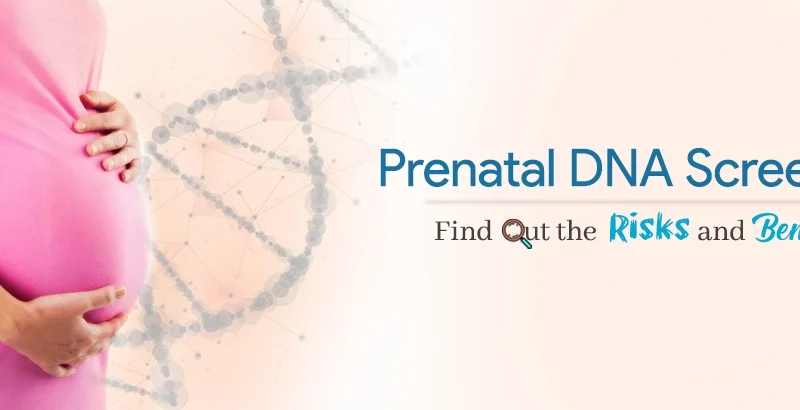Find Out the Risks and Benefits

Congratulations! You’ve embarked on a beautiful journey of becoming a mother. While going through the entire journey from the first trimester to the last, you may have several questions about the growing baby and the health of your pregnancy. So, to know how your pregnant body and the baby inside you are functioning, you might have to undergo prenatal screening.
What are Prenatal Screening and the Types of Screening?
“Prenatal screening test” is a blanket term for the doctor-recommended tests that are first done after 10 weeks of pregnancy. It is mostly carried out during the first and the second trimesters. Moreover, it to determine whether the baby inside the womb has chromosomal abnormalities or other health conditions, or whether you would require special management procedures are required during pregnancy and the delivery of your baby.
There are mainly two types of prenatal screening done, they are Prenatal Cell-Free DNA Screening and Diagnostic genetic testing.
- The diagnostic tests (amniocentesis or chorionic villi sampling (CVS)) are done by taking cells from the amniotic fluid, placenta, or the foetus between 15, and 20 weeks of pregnancy. These tests can be done until you’ve delivered your baby.
- Prenatal cell-free DNA is a pregnancy blood test. The baby’s DNA is present in the would-be-mummy’s bloodstream. A cell-free DNA screening is done to discover birth defects like Down syndrome or a trisomy-caused disorder. Trisomy is a disorder of the chromosomes. Chromosomes are the structures in our cells that carry our genetic information, also known as genes. Every person has 23 pairs of chromosomes, one from each parent for a total of 46 chromosomes.
Focussing more on prenatal cell-free DNA screening, the healthcare practitioner will tell you whether this test is risky, or good for you during your pregnancy.
Why is DNA Testing While Pregnant is Good?
The other name for cell-free DNA screening is cffDNA or non-invasive prenatal test, or NIPT. Your healthcare practitioner will be recommending DNA testing during pregnancy when you are or were:
- More than 30 years of age. Being more than 30 years old, you might primarily have the risk of bearing a baby suffering from Down Syndrome, or other trisomy disorders. The risks may increase with age.
- Through this test, it can be determined whether, in your prior pregnancy, the baby suffered from a chromosomal disorder.
- Maybe the foetal ultrasound or prenatal tests weren’t looking normal. After all, an improper-looking scan may prove that the genitals of the baby are unclear.
- Through prenatal DNA Screening, you might be able to understand the baby’s sex or gender.
- You’ll also get a clear idea about the Rh blood type. Rh protein is present in the red blood cells. Due to the presence of protein, you may be considered Rh-positive. However, if there is no protein presence, you’ll be Rh-negative. If you’re Rh negative, the baby-to-be will be Rh positive. That means the would-be-baby’s body’s immunity attacks the baby’s blood cells. But, you can be on medicines if you’re Rh medicines to keep the baby growing inside you from some of the dangerous complications.
- In some cases, genetic testing keeps you alert about the treatable problems during pregnancy.
- Although there is no risk during pregnancy, the results vary from one test to the other. Certain inaccurate results are known as false-negative or false–positive results and such results vary from one test to the other.
Is Prenatal DNA Testing Risky?
There are no such risks of prenatal DNA testing either for you, during your pregnancy, or the baby growing up inside you. But, weighing the risks of prenatal tests, you’d feel anxious, and painful or whether there is an impending miscarriage.
Whether to pursue a prenatal test or not is up to you. A genetic counsellor might help you with your decision.
After all, pregnancy is the most important phase, and prenatal genetic screening is helpful.


